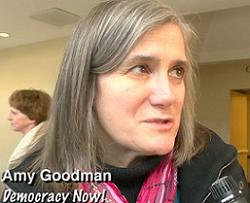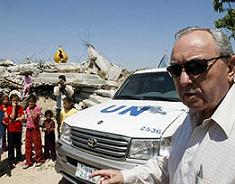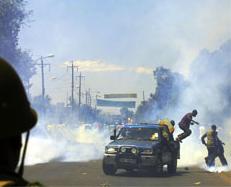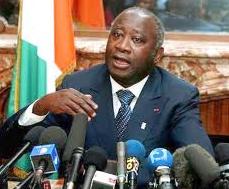
Changing the Media: The National Conference for Media Reform
The 2011 National Conference for Media Reform brought together more than 2,500 independent media makers, educators and leaders in the media reform movement.

The 2011 National Conference for Media Reform brought together more than 2,500 independent media makers, educators and leaders in the media reform movement.

Shocking is not a sufficient term to describe Justice Richard Goldstone’s decision to recant parts of the 2009 report on alleged war crimes in Gaza.

More than three years after Kenya’s most recent round of electoral violence ended, the fact that some of the country’s most prominent politicians and public officials were summoned to appear before the ICC last week offers hope that those who masterminded the violence will be brought to justice.

The arrest on April 11 of Laurent Gbagbo, his wife and family and a small circle of “the faithful” in his fortified home in Abidjan brings to an end a five-month standoff between Gbagbo and Alassane Ouattara.

Source: Mother Jones
The oceans around Japan’s Fukushima Daiichi nuclear power plant are beginning to show troubling signs of radioactivity. Recent tests by TEPCO found levels far surpassing legal limits, iodine by 7.5 million times and cesium by 1.1 million times. As MoJo environmental correspondent Julia Whitty has reported in several recent posts, radioactive material is now entering the marine food web, and will likely only continue to work its way up. And ocean currents are carrying the contaminants far and wide. As a result of the increased radiation levels, several countries, including Hong Kong, Russia, and India, have enacted temporary bans on Japanese seafood imports. But so far, there is no such ban in the US.

Source: Al Jazeera
In early March, while boisterous Carnival celebrations filled the streets of Rio de Janiero, bulldozers began clearing away Amazonian jungle for roads leading to the construction site of the Belo Monte hydroelectric dam on the Xingu River in northeast Brazil.
The $10bn dam is planned to be the third largest dam in the world. Government officials say its construction will generate thousands of jobs and create electricity for 23 million homes.
Environmental groups and indigenous activists in the area, however, condemn the project, which they say will displace some 20,000 people, and destroy over 100,000 acres of land in an area full of ecological diversity and indigenous communities.
Copyright Toward Freedom 2019